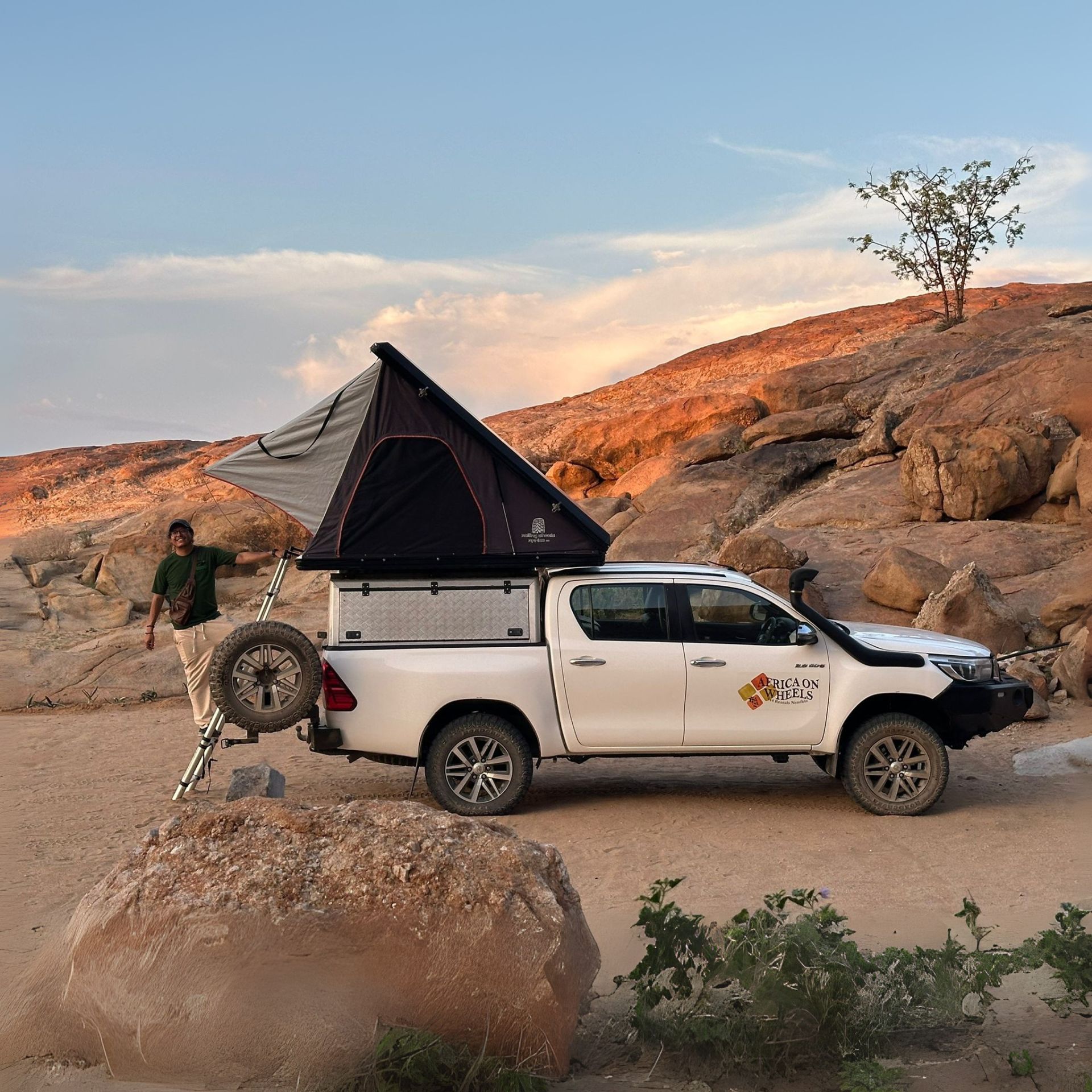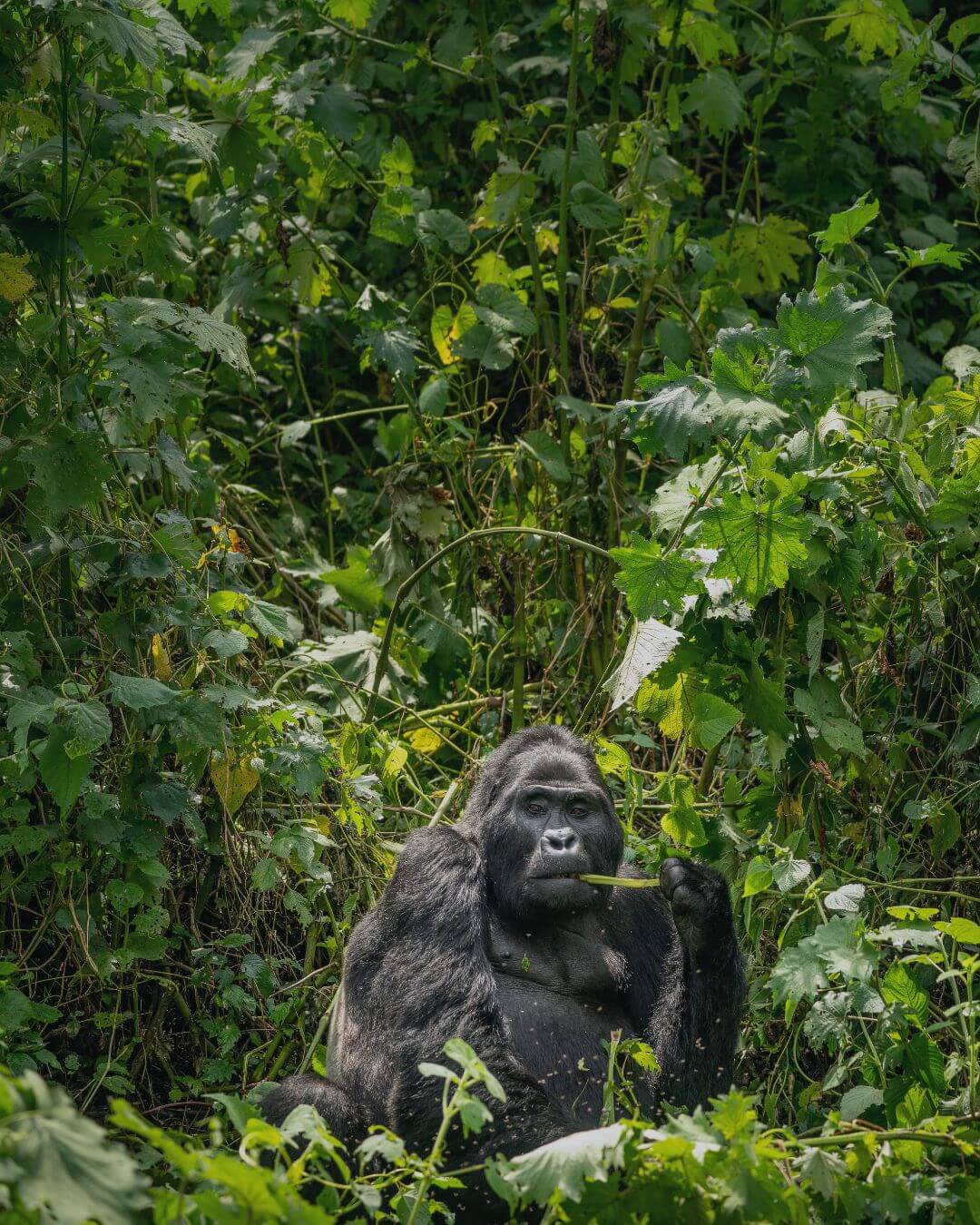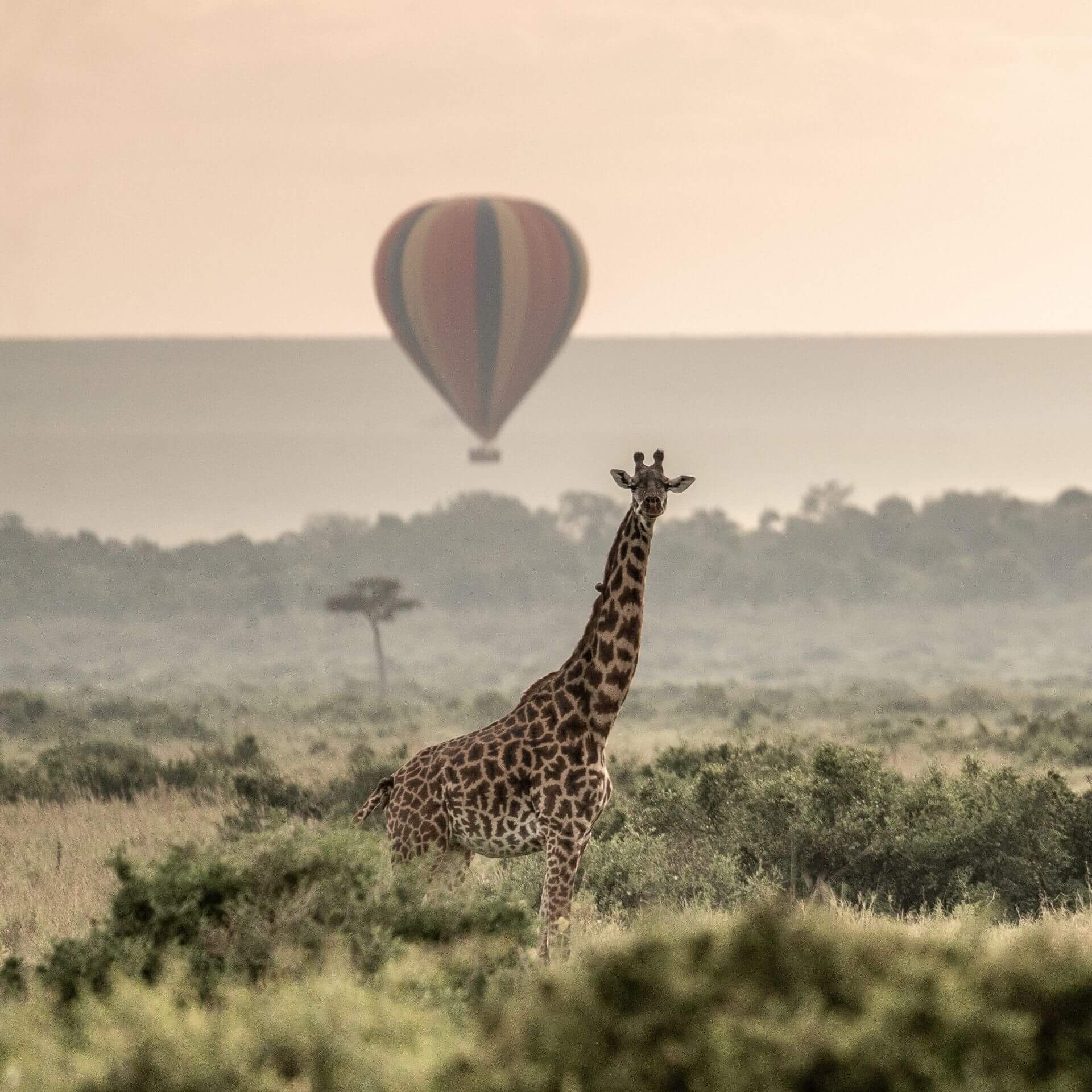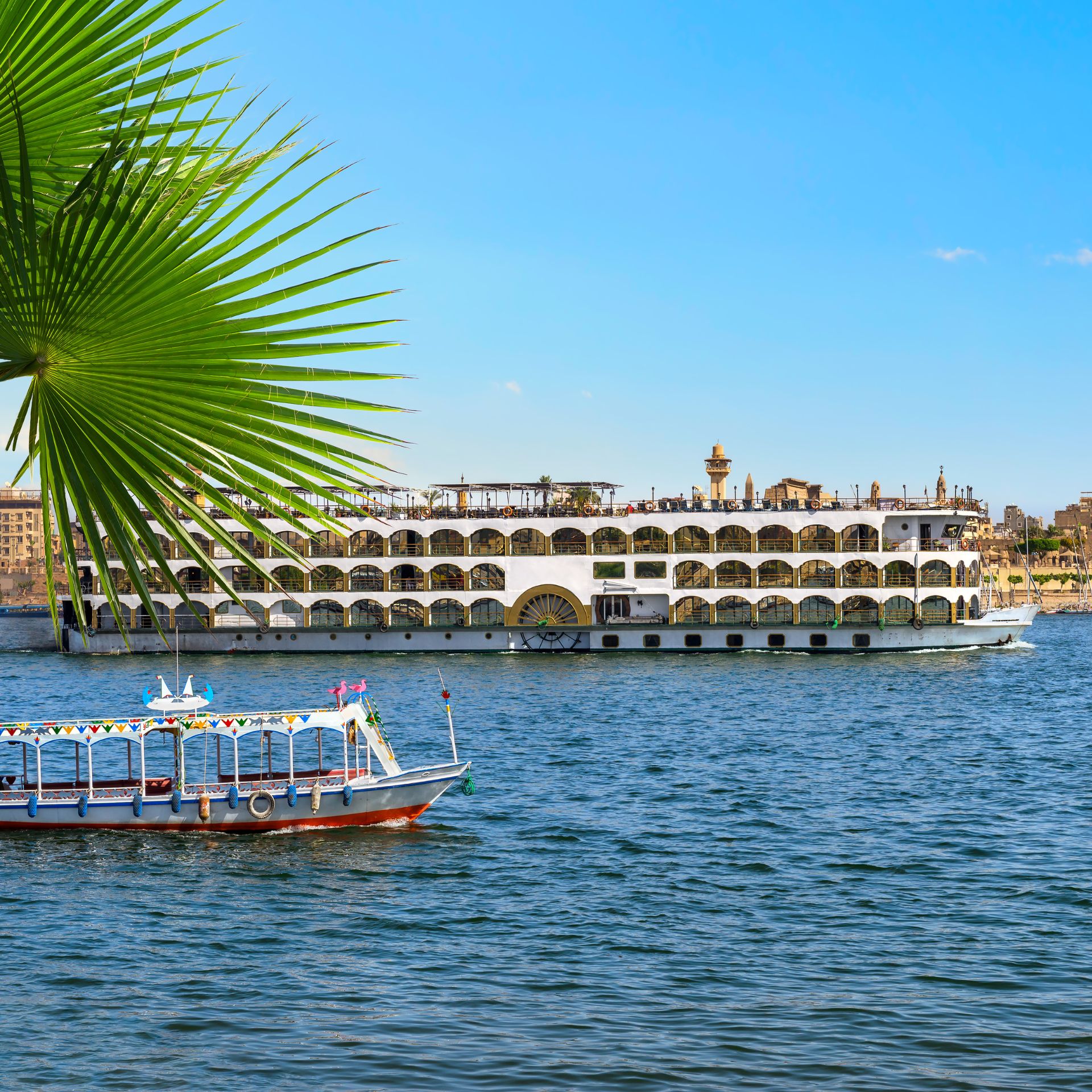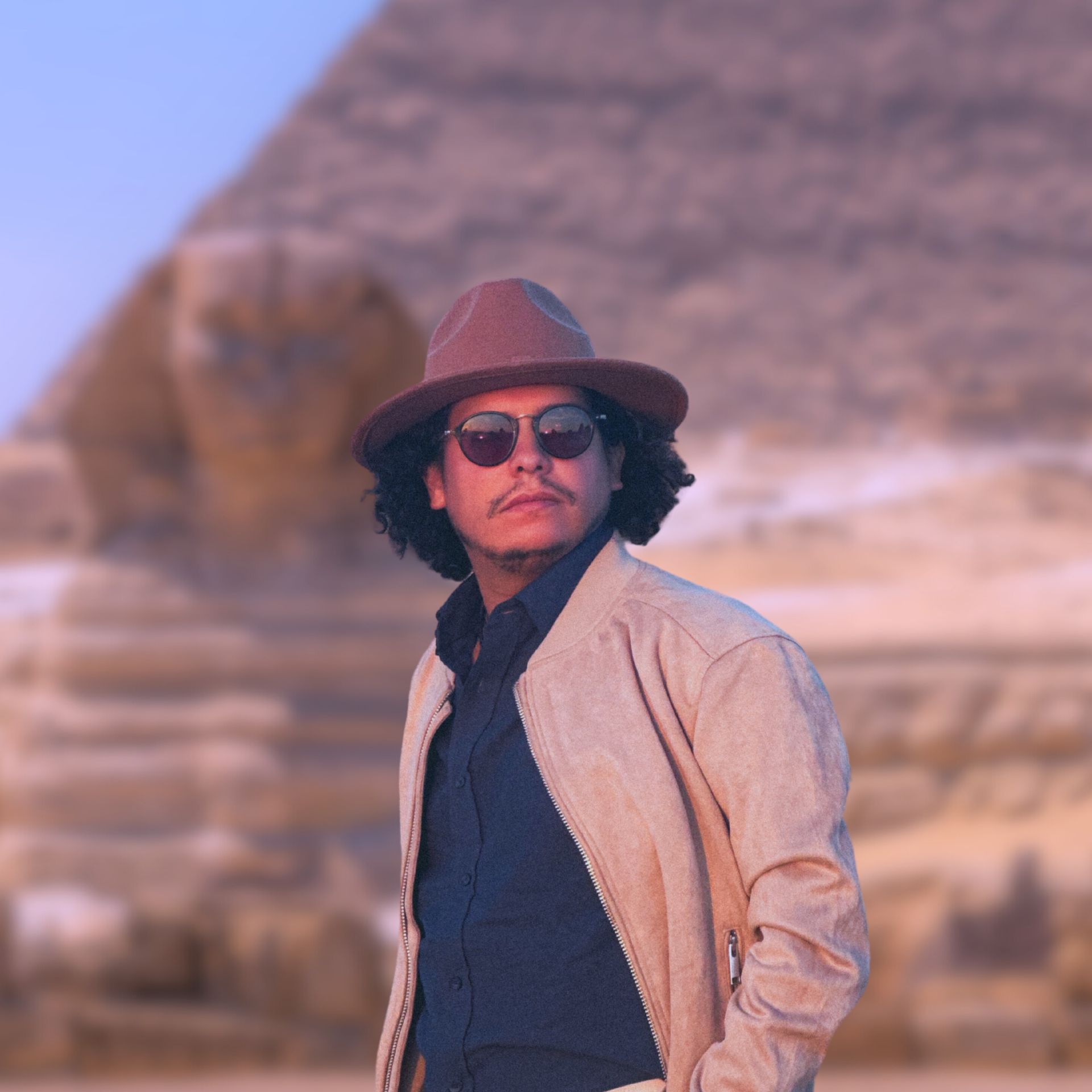From their bizarre traditions to their basic way of life, my visit to the Mundari tribe in South Sudan provided a firsthand experience of their everyday existence.
The scorching sun and unbearable temperatures turned every step into a marathon, every breath akin to the last. Going off the beaten path in South Sudan, I embarked on a quest to find a Mundari group and spend some time with them to learn about their rich traditions. Here, arid landscapes prevail, with only a few trees offering shelter from the relentless climate. In this harsh environment, the Mundari lead an exceptionally simple life – perhaps the most uncomplicated I’ve ever encountered. There’s no electricity, no tents, no currency; inflation and war appear to be distant concepts.
Ultimately, we located a group to spend a few days with. After three hours of negotiations with the tribal chief, we secured permission to set up our camping tents, positioning ourselves as observers among one of the world’s most unique ethnic groups residing in one of the world’s most demanding environments.
Read more: Mali uncovered – Best experiences to do in Mali
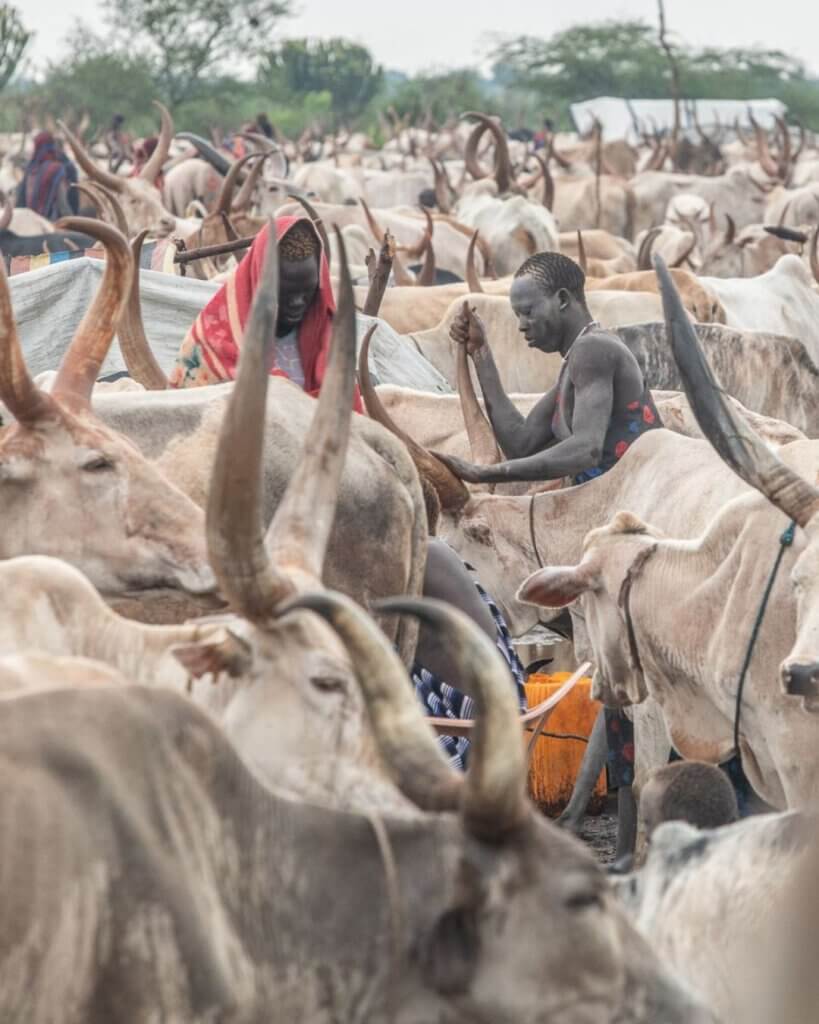
The Mundari and Their Land
The Mundari people primarily inhabit South Sudan’s Terekeka region, with some communities extending into neighboring areas. Despite the diverse terrain of savannas, rivers and forests, much of the year, desolation takes center stage. During my visit to this part of the world, temperatures soared above 40°C, and the climate was arid, dry, and seemingly lifeless.
This stark contrast renders the land inseparable from the Mundari way of life. Their deep connection to the environment, along with their tenacity for survival, is central to their cultural identity and livelihood.

Cattle: The Heart of Mundari Culture
From the moment I arrived in the Mundari area, cattle were a ubiquitous sight. Majestic long-horned cows stretched as far as my eyes could see, each tended to by just one or two young men.
For the Mundari tribe, cattle signify more than mere livestock, they embody life itself. Cows are revered as symbols of wealth and a vital source of sustenance. These animals form the bedrock of their culture, providing milk, meat, and even blood for consumption.
With the Mundari, the concept of wealth transcends currency. Cattle alone truly determine one’s affluence. These cows are meticulously adorned and cared for daily, with most Mundari even bestowing names and nicknames upon each of them.
Read more: Bizarre Traditions – This is a Chewa Funeral Ceremony in Malawi

A Day with the Mundari
The roles within the Mundari community are immediately recognizable. Each member has specific daily responsibilities. In the early morning, the strongest men attend to dung collection from the cows, milk retrieval, and ensuring the cattle’s well-being. Meanwhile, the women of the community oversee cooking and the youngest children.
Around 8 to 9 am, just before the searing sun takes its toll, young men aged 14 to 18 lead the cattle to nearby savannas, where they graze on fresh grass and drink water. For the Mundari, water is more critical for their cattle than for themselves. While the cows roam as needed to find the freshest water sources, the tribe either refrains from consuming water altogether or made use of the often contaminated water flowing through nearby canals.
During the day, the camp lies deserted as temperatures become unbearable. Men and women take refuge in the shade, engaging in conversation and rest. It’s only as the sun sets that the young men return with the cattle, and preparations are made for sleep. They burned cow dung to create mosquito repellent and lit several bonfires around the camp, where they would sit, share stories, and socialize late into the night.
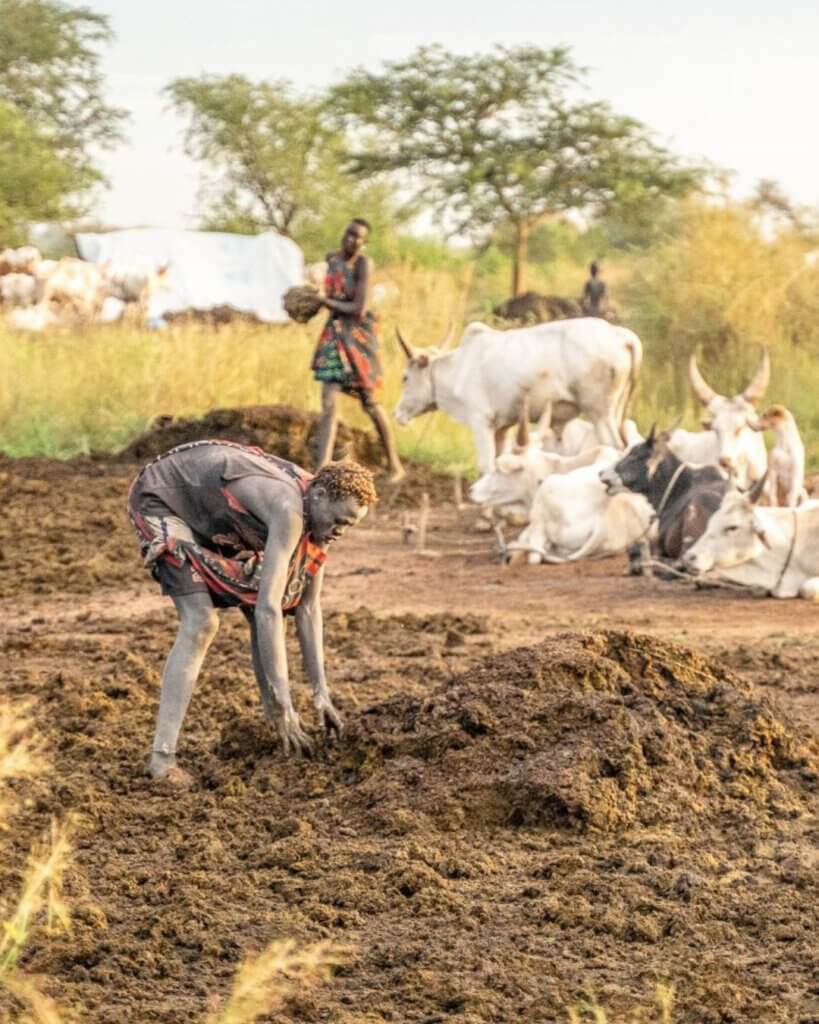
Cultural Practices and Traditions
Immersing oneself in the world of the Mundari offers a glimpse into a realm I believed no longer existed. Their rituals and traditions unveil incredible insights into their deeply ingrained customs, spirituality, and social structure.
While many travelers visit South Sudan to witness some of the weirdest Mundari practices and leave, my intent was to spend a substantial amount of time with the Mundari, aiming to genuinely comprehend how they navigate their simple existence in an increasingly complex world.
On one hand, the Mundari people uphold a nomadic lifestyle, traveling from area to area with their cattle to provide them with fresh pastures. This cyclical movement rhythmically defines the seasons of their lives, forging a harmonious relationship between humans and their environment.
Furthermore, the concept of community lies at the core of Mundari culture. The tribe places immense value on unity, shared responsibility, and a profound sense of togetherness. The chief of the community takes care for everyone and all families living in the community work as a whole.
Lastly, the preservation of traditions has big importance to the Mundari. It is one of the few places on Earth where facial scarification is still viewed as a mark of beauty. During my stay, I was able to see young Mundari men and women with scar patterns on their faces, a tradition believed to symbolize their tribe’s identity.
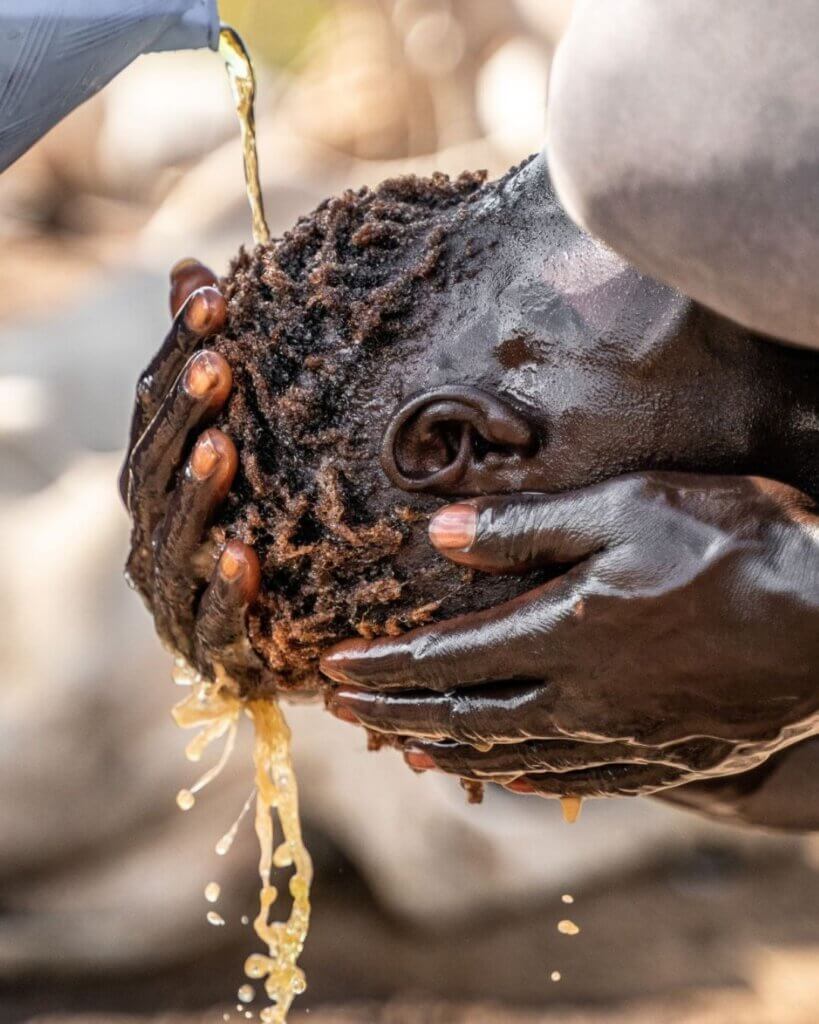
DID YOU KNOW: The Mundari people employ cow urine to wash their hair, a practice that results in a distinct transformation. Due to the unique composition of cow urine, their hair takes on vibrant hues of red and yellow as it oxidizes.
Read more: Meeting the Bushmen of Africa – Humanity’s first race

Challenges and Adaptations
Life for the Mundari tribe is not without its challenges. Living in such a harsh environment needs constant adaptation. For most Mundari, milk is their sole drink, and each morning, we witnessed both young and old Mundari using cow urine for hand and body cleansing.
Additionally, Internal conflicts continue to influence Mundari society. Ongoing disputes in South Sudan and environmental changes have presented substantial hardships. Nevertheless, the Mundari have displayed remarkable resilience in adapting to these challenges and still say they want to keep their culture as untouched from external factors as possible.
Still, in recent years, many Mundari families have diversified their income sources by engaging in trade, cultivating crops, or even working as local guides. These adaptations, though born out of necessity, have provided the Mundari with alternative opportunities beyond cattle-rearing. I encountered two or three Mundari who spoke proficient English, despite never having attended school or learned to read. They shared that their education came through conversations with foreigners in the country.
Read more: Meeting the Pygmies of DR Congo

Preserving Tradition in a Changing World
The Mundari way of life is a stark contrast to what one might see in Europe or North America. Today, the Mundari persist in passing down their stories, customs, and skills to the younger generations, ensuring the endurance of their unique way of life.
On one occasion, I encountered a Mundari man who spoke English while sharing sodas with his friends. He kindly offered me one, though I don’t drink soda. Instead, I decided to give it to a child I met on my way back. However, when the child’s father observed this, he became quite upset with his son for accepting the beverage. For Mundari children, milk is their primary source of hydration, and adhering to such traditions is a testament to their distinct perspective on life and their commitment to safeguarding their culture.
The world is changing and the Mundari for sure too. However, in a fast pacing world with technology evolving every day, it is nice and fresh to see that someone out there still does not care what world we live in or if the gas prices are going up or down.
Read more: Everything you need to know before visiting South Sudan


